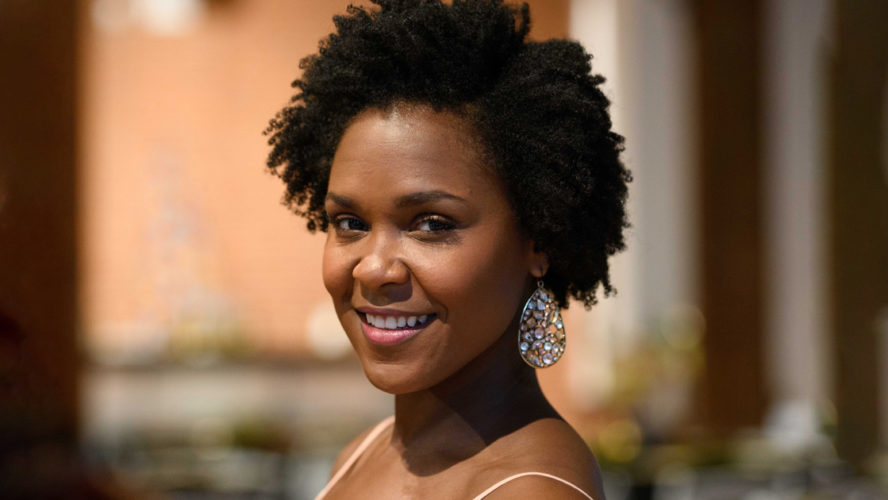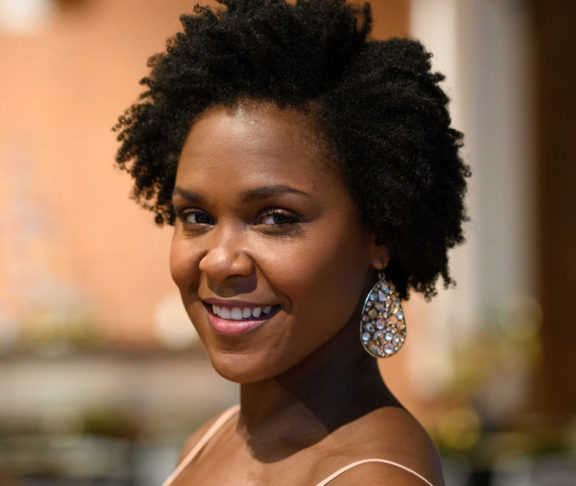Shanelle Gabriel is a poet and singer living with the autoimmune disease lupus. Since being diagnosed, she’s become an advocate for others who have autoimmune diseases, and often talks about the importance of increasing diversity in clinical trials, which she utilized to receive novel treatment for her condition.
Gabriel co-hosts a webinar series called Better Together on blackdoctor.org with rheumatologist Dr. Gala Baird, and released a new spoken-word poetry album titled “Things I Need to Remember” in April.
How did you find out that you have lupus?
I was in college as a sophomore and just noticed I had a lot of different symptoms that were really troublesome. I had really bad headaches that came out of nowhere, severe joint pain in the morning, stiffness, achiness, and some other stuff, but I didn’t know realize any of those were lupus symptoms until I went to a doctor after losing my hair.
Once I went to the doctor, I presented other symptoms, including anemia and severe fatigue. I was lucky enough to be one of the few that didn’t have as ton of difficulty getting diagnosed, because my primary care physician was next to a rheumatologist.
Did you have any knowledge of clinical trials before you agreed to participate in one?
Oh, yes, I did! So when my doctor asked me about it, I knew to say, “Hell no.” First I was like, “I know that I’m gonna be a lab rat.” I definitely had heard of the history of clinical trials. I started thinking of Tuskegee, thinking of all of those different examples throughout history where people, primarily people of color, were trying things unbeknownst to them.
So, you know, it took a while for my doctor to even get me to consider that as an option.
What would you say to healthcare professionals looking to increase diversity in clinical trials?
First, I think there’s a lot of misinformation out there. So, I think the best thing is just having a good relationship with your patients. And that doesn’t mean spending all day with them; that means just actually asking your patients how they’re doing. I think building good relationships with your patients makes that process just a lot easier.
I trusted my doctor. Now, granted, I definitely hesitated. But eventually, it was the fact that I know my doctor would only want what’s good for me because I trusted her, and if I had that relationship, I would at least consider something that might not be a thing that I traditionally would participate in.
And then there’s also just gathering information, making sure that you’re asking questions, making sure that you’re not telling people what they need to do, but fully explaining what’s going on. There are pamphlets out there, things that explain the entire process, and those materials are very, very helpful in allowing people to feel like they’re going into it making an educated decision and not just doing what they’re told.
How did your life change after participating in the clinical trial?
I was able to have access to medication that at the time wasn’t on the market that really helped me. And I think that that also made me feel really good about being a part of the process of helping other people. At the time, when I was on the medication, it was considered pretty novel, and just being able to say that “I’m able to help somebody else get access to that,” that meant a lot to me.
Before that, I had never really considered how diversity impacts care, and how diversity can help others who don’t have access. So, I’m very much an advocate for people of color to be a part of clinical trials, just so that we know that these medications that are coming out are considering us in the process.
It definitely changed my life and changed my perspective on just how being a part of something that seems so simple — sometimes more complicated — can have a really wide impact. I never thought about it until I participated.

